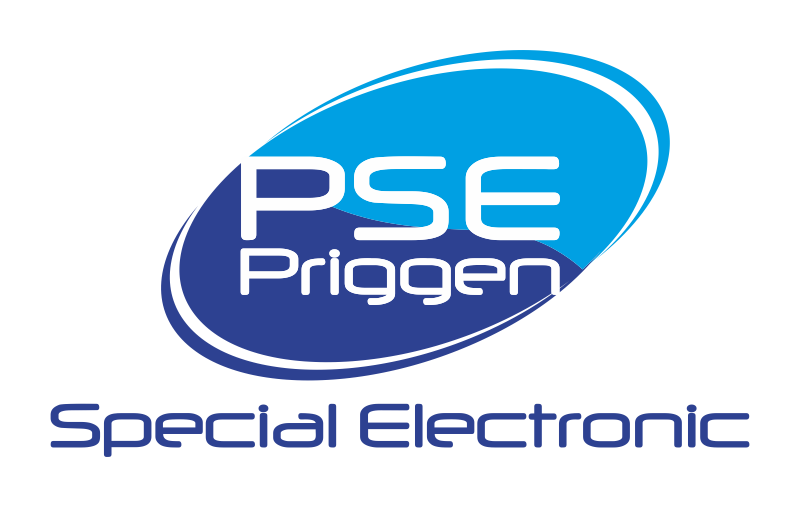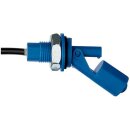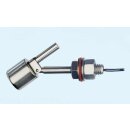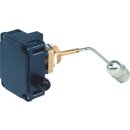- SKU:
- RWI-016-P-P-K
- SKU:
- RWI-016-P-V-K
- wall mounting
- NO or NC contact function
- reliable
- Density of medium: >=0.75 g/m³
- Pressure resistance: PN 6 bar
- Media temperature: -20..+130°C
- High resistance to many aggressive chemicals/ acids
- stainless steel design for high temperatures
- sensors suitable for: water, oil
- SKU:
- RW-015HKL
- wall mounting
- reliable
- good repeatabilty
- stainless steel design for high temperatures up to +200°C
- suitable for: water, oil and aggressive media
- SKU:
- MWI-025Hff
- Variations in:
-
- Connection Material
- Temperature up to +180°C
- High switching current
- 2 x changeover contacts
- Connection material brass or stainless steel
Level Sensors: Precise Measurement in Containers and Tanks
Level sensors are essential instruments for accurately detecting the level of liquids or solids in containers and tanks. These level sensors play a key role in a variety of industries, from chemical and food production to water management and warehousing. By using level sensors, companies can continuously monitor their material levels and ensure that processes run smoothly. Since level sensors are designed for use in a wide range of environments and conditions, they provide a reliable solution for precise level detection in various applications.
How Do Level Sensors Work in Automated Systems?
In modern automated systems, level sensors are an integral part. They enable efficient control of production processes or inventory management without the need for constant manual monitoring. By continuously measuring the level, level sensors provide real-time data that can be directly integrated into control systems. This ensures optimal automation performance and prevents material shortages or overflows. The seamless integration of level sensors into automated processes is a crucial factor in increasing efficiency and reliability in production and storage environments.
Level Sensors as Key Technology in Industry
In industrial manufacturing, level sensors play an indispensable role. They ensure that production processes run continuously and without interruptions by monitoring the level of raw materials or finished products in real time. Particularly in industries where precision and safety are paramount, such as the chemical or pharmaceutical sector, level sensors help optimize production workflows. When storing sensitive materials, level sensors also minimize risks and ensure that storage conditions are continuously monitored. These technologies are now essential to meet the high demands of modern industries.
The Future of Level Sensors
With ongoing technological advancements, level sensors are becoming more powerful and versatile. In the future, the importance of these level sensors will continue to grow, especially as production and storage systems become increasingly interconnected. Smart level sensors that can transmit data in real-time to central control systems open new possibilities for process automation and optimization. Whether in industry, agriculture, or environmental monitoring, the future of level sensors will be characterized by even more precise measurement methods and stronger integration into digital control systems. The ability to reliably and efficiently monitor levels remains a critical factor for success in many industries.




